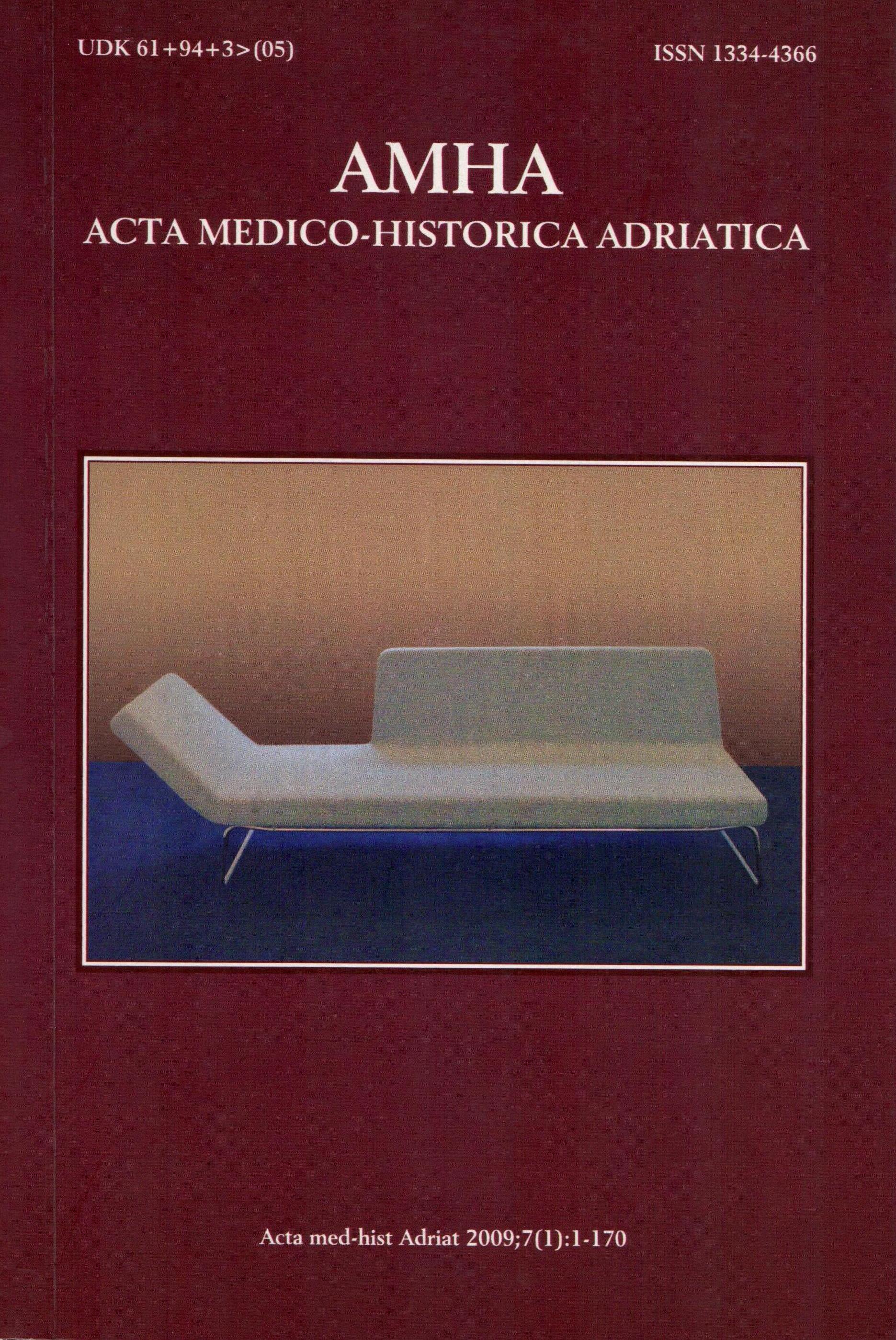TRAGOVI ZDRAVSTVENE KULTURE U STAROME KORČULANSKOM STATUTU
Keywords:
History of law, medieval statute, history of medicine, 13th century, Korčula, CroatiaAbstract
Korčula’s Code of Statutary regulations (from 1214, 1265, 1271 and later) contained very intersting rules of sanitary conditions in Korčula of that time. To protect the spreading of plague is prohibited contact with persons from the contaminated areas; it prohibited also entry into contaminated regions and rivers. The persons from the plague-stricken places were not allowed to enter the city. As was the custom, to preserve sanitary-hygienic conditions the shoe-markers were forbidden to pollute the town with leather tanning. It was also forbidden to keep pigs in the city and to do washing in the pools. The place and time for throwing rubbish away were strictly controlled. To protect the citizens’ lives and health the preparing of plant poisons was considered a felony. Capital punishment, burning at the stake, followed a case where somebody died or lost a limb as a result of plant poisoning. In a case less serious, such as fainting, the Prince metes out punishment according to his judgement of the crime. If the criminal abscondes with exile the confiscation of all his property could follow.


